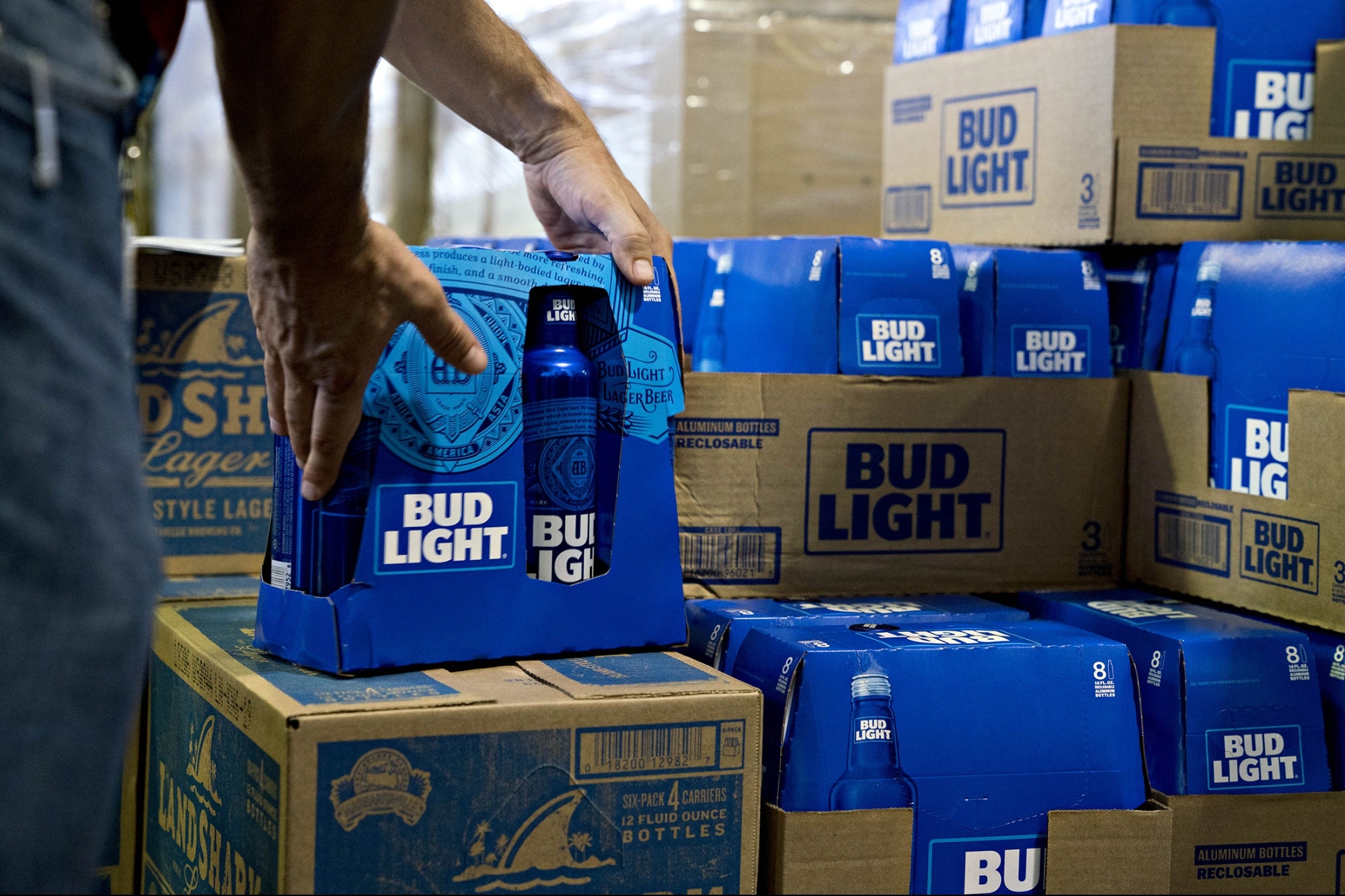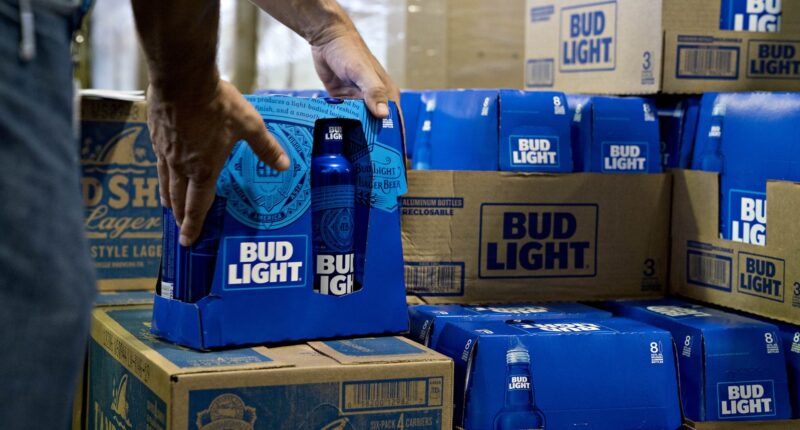
Opinions expressed by Entrepreneur contributors are their own.
Trouble is brewing for Anheuser-Busch (ABI). Following the company’s controversial Instagram collaboration with transgender actress/influencer Dylan Mulvaney, Bud Light sales plummeted 26% (compared to 2022), two marketing executives were placed on leave, and distributor sales dropped nearly 30%. In a “complete lack of oversight,” Bud Light’s national, decades-long status as the No. 1 beer was dismantled in less than a week. Still, the question remains: is Bud Light “woke” yet?
In today’s culture, wokeness is an indicator of one’s awareness of issues such as racial prejudice, discrimination, sexism and other social inequalities. Wokeness doesn’t just apply to individuals; consumers actively measure companies against this social metric. In an effort to meet this standard, 43% of CEOs now consider diversity, equity, and inclusion (DEI) to be high on their list of challenges — for both their internal operations and external communications. I am a firm believer in diversifying companies, fostering inclusivity and promoting equal representation — but “checking the diversity box” is neither ethical nor effective, and consumers know it.
Related: Costco Stamps Bud Light With Its ‘Star of Death’ After Severe Backlash
Know who your consumers are
Consumers increasingly want their purchases to adequately reflect their own values. Companies want to convince us that their products align with our own ideals — an exceedingly treacherous endeavor in an increasingly polarized political environment. When ABI opted to expand market territory by trying to appeal to a younger, hard-seltzer-drinking generation, their internal teams were working in siloes. Thus, the company failed to holistically consider the values of its most loyal consumers, ruffling the feathers of Bud Light’s primary consumer base — which is simply a poor business decision.
So, where did ABI go wrong? The marketing team wanted to move away from Bud Light’s “fratty” and “out of touch” humor — but at whose expense? Not only did ABI spark outrage among its core and conservative consumers, but it also failed to act as a true ally to the community they were marketing to — alienating both its potential and existing consumers.
Though ABI “never intended to be part of a discussion that divides people,” real activism isn’t possible without such division. Unfortunately, in today’s society, allying with one group (especially marginalized populations) can alienate another. Neutrality can be interpreted as an act of indifference (or complicit) or aggression (anti-ally).
Related: Angry Customers Boycotting Bud Light Haven’t Meaningfully Impacted Sales, Says Anheuser-Busch CEO
In some cases, being “woke” sells — consider Nike’s infamous ad featuring pro football player/activist Colin Kaepernick. Nike’s ad also prompted boycotts, but Nike doubled down on its decision to stand by Kaepernick. Ultimately, Nike even won an Emmy for the ad, and the company’s stock grew by more than 80% over the next five years.
The difference between Nike and ABI is twofold: firstly, Nike was already known to be a counter-cultural company, so the Kaepernick ad was consistent with its business strategy (while some felt the ad was out of line, no one perceived it as out of character). Likewise, Nike understood its consumer base: young, left-leaning individuals interested in sports and social activism. By taking both identities into account — their primary consumers, and the company itself — Nike was able to execute a campaign that benefitted not only the company but also Kaepernick’s platform for racial justice.
Related: Bud Light Launches ‘Biggest Summer Campaign Ever’ Amid Backlash and a Decline in Sales
Know who you are as a company
Back in 2017, Pepsi released an ad that seemed to refer to the Black Lives Matter movement and/or police brutality protests. When casting Kendall Jenner as a “white savior” figure, Pepsi failed to consider its Black consumers. The company also failed to evaluate its own lack of any real activism related to the movement. Pepsi acknowledged that it had “missed the mark” in misappropriating a serious issue. It released a statement eerily reminiscent of ABI’s recent apology: “Pepsi was only trying to protect a global message of unity, peace and understanding” — by bringing everyone together to enjoy a beverage, of course.
Ben & Jerry’s is no stranger to controversial, political marketing — and like Nike, these social stunts have yet to have a lasting impact on the company’s profitability. The ice cream company is a well-known leader in DEI and social activism and has never forsaken its “hippie” Vermont roots. Ben & Jerry’s can afford to be bold because their messaging is authentic: they practice what they preach. The company even has an in-house activism budget — backing up the promises printed on its colorful cartons. By contrast, ABI was unwilling to fully commit to being an LBGTQ+ ally, yet hoped (like Pepsi) to profit off the initial optics of the Mulvaney partnership.
Related: How to Build a Team That’s True to Your Values
Make DEI part of the company strategy
Alex Gorsky, CEO of Johnson & Johnson, says, “The best innovations can only come if our people reflect the world’s full diversity of individuals, opinions, and approaches.” This message opens the door for DEI strategies that can make a difference. The important piece that many business leaders miss is that these initiatives must be built into the DNA and strategy of the company rather than tacked on as an afterthought. Had Pepsi or ABI built truly diverse teams operating at all levels, their workforces would have been more representative of the market being served — and they may have recognized the potential pitfalls of their partnerships.
Of course, only companies who “walk the walk” should consider “talking the talk” on a public stage — but even the most well-intentioned companies fall short of making real progress regarding DEI. In 2020 and 2021, companies such as McDonald’s, Microsoft, Boeing and Best Buy pledged to improve diversity hiring practices and DEI training, and more than 60 US companies appointed their first-ever Chief Diversity Office (CDO).
And yet, 80% of HR professionals view companies as just “going through the motions,” and 40% of Black professionals don’t believe leaders follow through on authentic DEI initiatives. Much of this comes down to the challenges of actual implementation; many CDOs leave their roles due to a lack of strategic, leadership and financial support. Companies who seek to execute DEI plans must be sure that the company has the infrastructure to support such initiatives — otherwise, their failure undermines their good intentions.
Read More: 7 Ways Leaders Can Level Up Their DEI Workplace Strategy
Make it a real, long-term commitment
As John Doerr writes in Measure What Matters: “Ideas are easy, execution is everything.” I believe that companies who try to capitalize on shallow partnerships only increase the work we still need to do in both the business world and society at large. Until companies actually say what they mean and mean what they say, employees and consumers alike will continue to see through their empty promises and false alliances. Failed campaigns like ABI’s do more harm than good — not just for the company, but also for the causes and people they only feign to support.
This article is from Entrepreneur.com









